
United Nations Security Council resolution 727, adopted unanimously on 8 January 1992, after reaffirming resolutions 713 (1991), 721 (1991), 724 (1991) and considering a report by the Secretary-General Boutros Boutros-Ghali, the council welcomed the recent signing of an agreement in Sarajevo regarding a ceasefire to the conflicts in the Socialist Federal Republic of Yugoslavia.
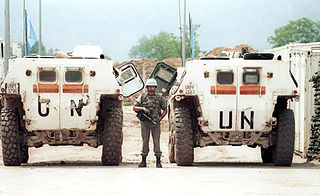
United Nations Security Council resolution 743, adopted unanimously on 21 February 1992, after reaffirming resolutions 713 (1991), 721 (1991), 724 (1991), 727 (1992) and 740 (1992), and considering that the situation in the Socialist Federal Republic of Yugoslavia constituted a threat to international peace and stability, the council established a peacekeeping mission in the country, known as the United Nations Protection Force (UNPROFOR), with the aim of reaching a peaceful political settlement in the region.
United Nations Security Council resolution 749, adopted unanimously on 7 April 1992, after reaffirming resolutions 713 (1991), 721 (1991), 724 (1991), 727 (1992), 740 (1992) and 743 (1992), the Council approved of a report by the Secretary-General Boutros Boutros-Ghali and decided to authorise the earliest possible deployment of the United Nations Protection Force (UNPROFOR) in the former Yugoslavia.
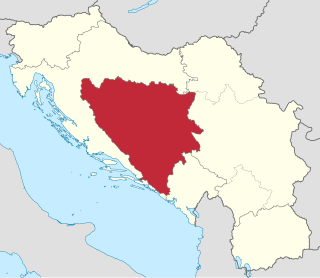
United Nations Security Council resolution 752, adopted unanimously on 15 May 1992, after reaffirming resolutions 713 (1991), 721 (1991), 724 (1991), 727 (1992), 740 (1992) 743 (1992) and 749 (1992), the Council expressed concern at the situation in the Yugoslavia, in particular the fighting in Bosnia and Herzegovina, demanding that all parties end the fighting and respect the ceasefire signed on 12 April 1992.

United Nations Security Council resolution 758, adopted unanimously on 8 June 1992, after reaffirming resolutions 713 (1991), 721 (1991), 724 (1991), 727 (1992), 740 (1992) 743 (1992), 749 (1992), 752 (1992) and 757 (1992), the council, in accordance with a report by the Secretary-General Boutros Boutros-Ghali, decided to enlarge the mandate and strength of the United Nations Protection Force (UNPROFOR) in former Yugoslavia.

United Nations Security Council resolution 762, adopted unanimously on 30 June 1992, after reaffirming resolutions 713 (1991), 721 (1991), 724 (1991), 727 (1992), 740 (1992) 743 (1992), 749 (1992), 752 (1992), 757 (1992), 758 (1992), 760 (1992) and 761 (1992), the Council urged all parties to honour their commitments to the United Nations plan in former Yugoslavia and complete a cessation of hostilities.
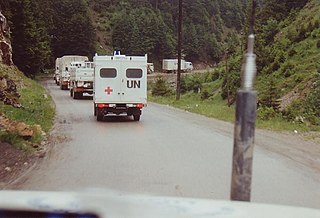
United Nations Security Council resolution 764, adopted unanimously on 13 July 1992, after reaffirming previous resolutions on the topic, the Council noted the violations of the agreement concerning Sarajevo International Airport which established a security corridor and demanded withdrawal of anti-aircraft weapon systems, and decided to authorise an additional deployment of United Nations Protection Force personnel. It would increase the size of the Force to two infantry battalions.

United Nations Security Council resolution 771, adopted unanimously on 13 August 1992, after reaffirming resolutions 713 (1991), 721 (1991), 724 (1991), 727 (1992), 740 (1992), 743 (1992), 749 (1992), 752 (1992), 757 (1992), 758 (1992), 760 (1992), 761 (1992), 762 (1992), 764 (1992), 769 (1992) and 770 (1992), the council expressed concern at and condemned widespread violations of international humanitarian law in the territory of the former Yugoslavia and in particular, Bosnia and Herzegovina.

United Nations Security Council resolution 779, adopted unanimously on 6 October 1992, after reaffirming Resolution 743 (1992) and subsequent resolutions and noting a report by the Secretary-General Boutros Boutros-Ghali submitted pursuant to resolutions 743 and 762 (1992), the Council authorised the United Nations Protection Force (UNPROFOR) to assume responsibility for monitoring the complete withdrawal of the Yugoslav People's Army from Croatia, demilitarization of the Prevlaka peninsula and the removal of heavy weapons from neighbouring areas of Croatia and Montenegro in co-operation with the European Community Monitoring Mission.

United Nations Security Council resolution 787, adopted on 16 November 1992, after reaffirming Resolution 713 (1991) and all subsequent resolutions on the topic, the council called upon the parties in Bosnia and Herzegovina to consider the draft outline constitution as a basis for negotiating a political settlement of the conflict in the country, and went on to impose further international sanctions on the Federal Republic of Yugoslavia.

United Nations Security Council resolution 807, adopted unanimously on 19 February 1993, after reaffirming Resolution 743 (1992) and all subsequent relevant resolutions concerning the United Nations Protection Force (UNPROFOR), the Council determined that the situation in Bosnia and Herzegovina and Croatia continued to constitute a threat to international peace and security and therefore extended the mandate of UNPROFOR for an interim period ending 31 March 1993.

United Nations Security Council resolution 820, adopted on 17 April 1993, after reaffirming all previous resolutions on the topic for a lasting peace settlement in Bosnia and Herzegovina and the region, the council discussed the peace plan for Bosnia and Herzegovina and comprehensive steps to ensure its implementation.

United Nations Security Council resolution 827, adopted unanimously on 25 May 1993, after reaffirming Resolution 713 (1991) and all subsequent resolutions on the topic of the former Yugoslavia, approved report S/25704 of Secretary-General Boutros Boutros-Ghali, with the Statute of the International Tribunal as an annex, establishing the International Criminal Tribunal for the former Yugoslavia (ICTY).
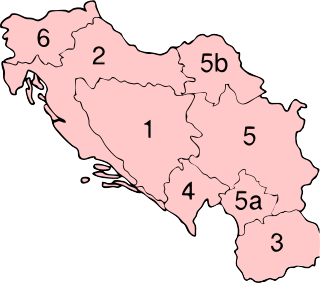
United Nations Security Council resolution 871, adopted unanimously on 4 October 1993, after reaffirming resolutions 713 (1992) and 743 (1992) and subsequent resolutions relating to the situation in the former Yugoslavia and United Nations Protection Force (UNPROFOR), the Council expressed concern that United Nations peacekeeping plan for Croatia, in particular Resolution 769 (1992), had not been implemented and went on to discuss the peace plan and extend UNPROFOR's mandate until 31 March 1994.

United Nations Security Council resolution 942, adopted on 23 September 1994, after reaffirming all resolutions on the situation in Bosnia and Herzegovina, the Council reinforced measures relating to safe areas under control of Bosnian Serb forces.
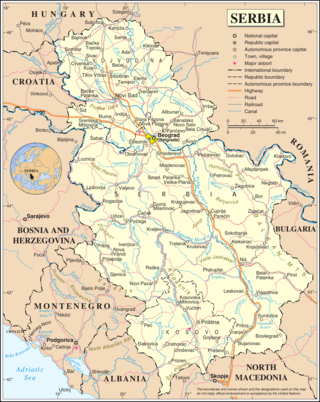
United Nations Security Council resolution 970, adopted on 12 January 1995, after reaffirming all resolutions on the situation in Bosnia and Herzegovina in particular Resolution 943 (1994) concerning the border closure between the Federal Republic of Yugoslavia and Bosnia and Herzegovina, the Council decided that measures in that resolution would be suspended for a further period of 100 days.
United Nations Security Council resolution 982, adopted unanimously on 31 March 1995, after reaffirming all resolutions on the situation in the former Yugoslavia in particular Resolution 947 (1994) concerning the United Nations Protection Force (UNPROFOR), the Council extended the mandate of UNPROFOR for additional period terminating 30 November 1995 and discussed operations in Croatia.
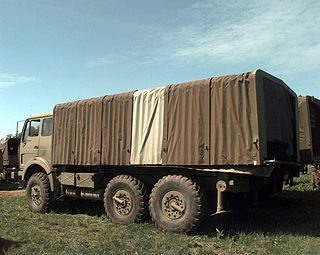
United Nations Security Council Resolution 1021, adopted on November 22, 1995, after recalling all resolutions on the situation in the former Yugoslavia, particularly resolutions 713 (1991) and 727 (1992), the Council set a date of March 13, 1996, for the suspension of most aspects of the arms embargo on the former Yugoslavia. Resolution 1074 (1996) terminated the remaining measures of the embargo.

United Nations Security Council resolution 1027 was adopted unanimously on 30 November 1995. This occurred after recalling previous resolutions including Resolution 983 (1995) on Macedonia. The Council extended the mandate of the United Nations Preventive Deployment Force (UNPREDEP) until 30 May 1996.

United Nations Security Council resolution 1031, adopted unanimously on 15 December 1995, after recalling all previous resolutions on the conflicts in the former Yugoslavia, the council, acting under Chapter VII of the United Nations Charter, discussed the transfer of authority from the United Nations Protection Force (UNPROFOR) to the multinational Implementation Force (IFOR).


















